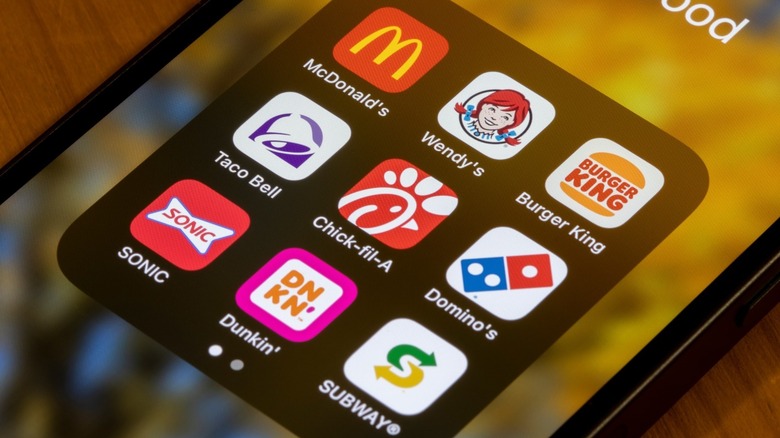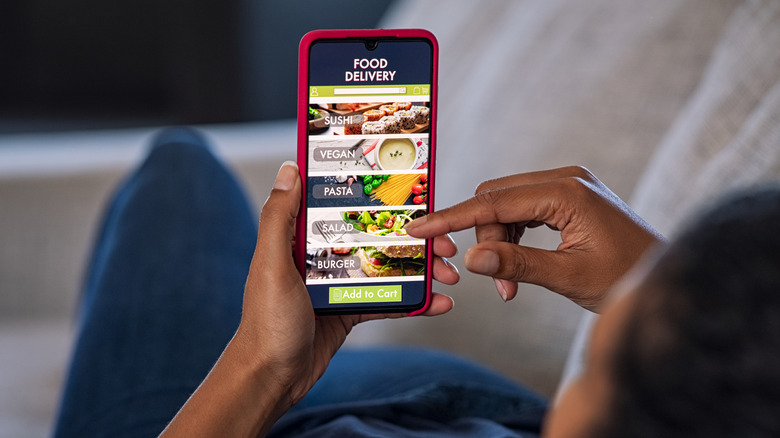Why Restaurant Apps Might Be Tracking More Than You Think
Look at your phone beside you, or maybe it's in your pocket. Perhaps you have an Apple or a Samsung, but it doesn't really matter in the end. It serves a useful purpose to you, letting you call your parents, surf the web, or check out which restaurants you have enough loyalty points to snag a meal. But how often have you noticed that Siri seems to come on even when you're not talking, or ads are showing up for things you were just talking about with your friend (via Narcity)? Just how much does this shining rectangle know about you?
Private data and smartphones have been a major controversy. Even Reader's Digest notes that your smartphone has a rather impressive list of information that it knows about you without you telling it anything. There is even a conspiracy theory that the popular social media site Facebook is nothing more than a CIA-controlled asset to gather data on people (via USA Today). Whether or not this is true, we'll leave it up to you. It is sort of an "open secret" that your phone collects data on you, tracking what you search for and what you like, allowing it to be a "digital profile" based on your tastes and likes.
Even restaurant apps, such as your McDonald's app or your Buffalo Wild Wings account, may gather data on you more intimately than you realize.
Restaurant apps track you constantly, even when not in use
If you use restaurant apps, even if you use them every so often, it's easy to forget that they are still apps. These programs and applications are designed to collect and share your data and market information to different businesses. But how exactly do they do that, and could they be doing more than just that?
According to Sprudge, an example of a restaurant app doing more than what you expected it to do is the app for Canadian-based fast-food chain Tim Horton's. The story goes that the app would continuously track "users' movements without their consent, even when the app wasn't in use." This "location-tracking" feature was discovered by a reporter for the Financial Post, who claimed that the app not only tracked his movements from home and work but even where he went on vacation. It would appear that the app's description was vague enough to tell people that while it would track them, it wouldn't tell them the app would be monitoring them constantly.
Off The Grid News also reports that restaurant apps can use your phone number and e-mail address, with all that valuable data being monitored by anyone from corporations to government agencies. Of course, this article isn't meant to scare you or make you paranoid. Instead, you should be a bit more cautious the next time your app wants your e-mail or phone number in exchange for a free sandwich or coffee.

